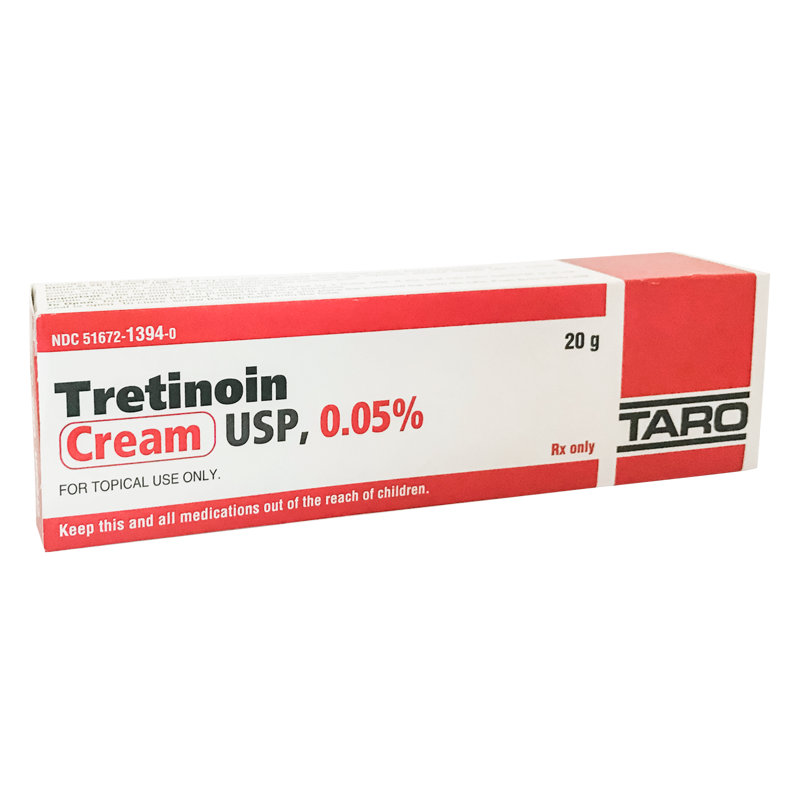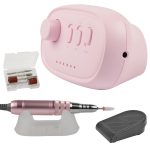When retinol first hit the beauty scene it was Marmite- some loved its powerful anti-ageing results, others hated it for leaving their skin flaky and inflamed. But retinol’s big sister tretinoin (also known as tretinoic acid) is the powerhouse ingredient to beat acne, reduce fine lines and hyperpigmentation.
It’s a prescription treatment so you need to visit your GP who will design a plan for you including the strength and frequency you should start with.
Tretinoin Creams
Tretinoin is a form of Vitamin A, and it does a lot of work on the skin. It unblocks pores, promotes healing and affects how the skin cells grow. It also helps to minimise blemishes and dark spots. It’s best for those with dry or normal skin and is a little too drying for oily skin types. It’s available in cream and gel formulations.
When you first start using this medication, it can cause a period of red, inflamed and flaking dry skin that’s often called the ‘skin purge’. It can be quite uncomfortable, but don’t stop using it. It’s all part of the process.
Tretinoin can make the skin more sensitive to sunlight (and artificial sunlamps), so it’s important to protect your face and neck with sunscreen, even on hazy days. Also, avoid exposing the area to extreme weather, and wear protective clothing like a hat. It’s also not recommended for use during pregnancy.
Tretinoin Cream 0.05
TRETIN 0.05% CREAM helps improve blemishes, minimise fine lines and wrinkles and limit discolouration caused by sun damage. This medication is a Vitamin A (retinol) derivative. It works by unclogging congested pores and allowing new skin cells to form. It can take 8-12 weeks to see results from this medication. This medication should only be used as directed by a doctor. It should not be applied to irritated, broken or sunburned skin. It should not be used by pregnant women unless specifically directed by a doctor.
Apply a thin layer of this medication on the face before you go to bed each night. Wash your skin before applying. Use a gentle soap and pat dry. Avoid excessive washing or scrubbing, as this can lead to irritation. You should also avoid rubbing the area, as this can cause itching and redness. You should not use this medication if you have certain underlying skin conditions like rosacea.
Tretinoin Cream 0.1
Tretinoin is the higher-strength big sister to retinol, helping minimise fine lines, limit blemishes and even out skin tone. A Vitamin A derivative, it works deep beneath the surface to unclog pores and stimulate collagen production, while also speeding up your skin’s natural renewal process.
When you first start using tretinoin, you might experience a period of red, flaking and dry skin known as purging. This is because tretinoin speeds up cell turnover, which can cause old, dead skin to shed off, leading to temporary blemishes and dryness.
To help ease the transition, it’s best to start with a lower concentration and ramp up slowly. Only use a pea-sized amount and only on the areas that need it. Too much can irritate the skin. Wash with a gentle cleanser and pat your skin dry before applying. Always follow up with a moisturiser to protect your skin from dryness and irritation. Apply every evening after cleansing.
Tretinoin Cream 0.025
Tretinoin works by strengthening collagen, a protein that gives skin its strength and elasticity. It also helps reduce or erase wrinkles and fine lines, brightens skin, and makes pores appear smaller. It is one of the most effective topical acne treatments available and should be used as directed by a dermatologist.
It helps treat noninflammatory (comedonal) acne by unclogging pores and removing dead skin cells, which prevents oil buildup. It also creates a less welcoming environment for acne-causing bacteria. It can help reduce red, inflamed acne spots by removing excess melanin, which is the pigment that causes uneven skin tone.
Before applying tretinoin cream, make sure your skin is clean and completely dry. Apply a pea-sized amount to the skin, spreading it evenly over your face and neck. Avoid the corners of your eyes and mouth and other areas that are easily irritated. It may take weeks or even months to see the full effects of tretinoin. tretinoin cream uk


